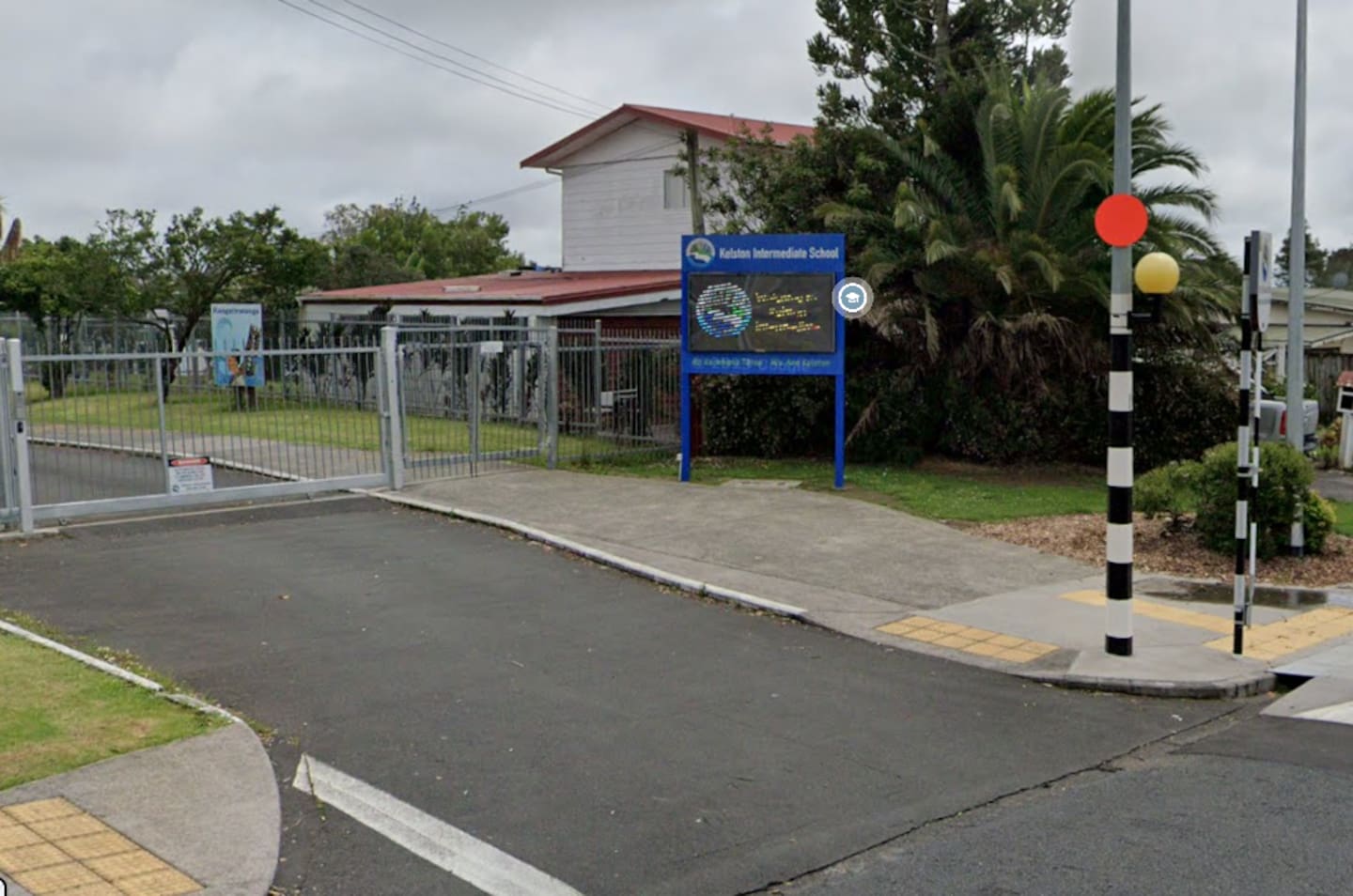
- West Auckland’s Kelston Intermediate School has resorted to feeding its students Weet-Bix and sausage sizzles amid ongoing issues with the revamped Government lunch programme.
- Principal Bert Iosia said teacher aides have also been pulled from classrooms to help sort through the lunches.
- The Ministry of Education said it understands the “frustration and disappointment” felt by schools and expects the School Lunch Collective to listen to the concerns raised.
A West Auckland school has resorted to sausage sizzles and Weet-Bix as well as using teacher aides to sort through supplied lunches amid ongoing issues with the revamped lunch programme.
Kelston Intermediate School principal Bert Iosia told the Herald it had only received school lunches on time on three occasions since starting the term on January 30 and called the rollout of the programme “frustrating to say the least”.
Teacher aides have also been pulled out of classrooms for the last third of the day to help sort through lunches for students with dietary requirements after they were randomly assorted in boxes before being delivered.
Iosia said he anticipated some issues in the first couple of days of the programme, but after he was told lunches were scheduled to arrive at 3pm and 4pm – when the school had allocated the drop-off time as 12.45pm – he called it “nightmarish” and “no use to anyone”.
He said it was “gut-wrenching” when he had to reach out to the school community last week and ask parents to provide lunches for their kids, “because I just couldn’t put on lunches every single day for the kids”.
“The comms were pretty good from the School Lunch Collective, but you could see that they were under the pump. There were assurances that we were going to get lunches, but my gut feeling was that they wouldn’t be arriving,” he said.

Kelston Intermediate School Principle Bert Iosia says they have only received lunches on three school days this year. Photo / Google
“I back the lunch programme so I try not to bad-mouth it in any way, but I did explain to families that there were these teething problems going on [and] there’s no assurances that the lunches could arrive.”
He said staff had been advised to keep a close eye on students and if anyone was seen without lunches, they would be provided by the school.
“I thought we could manage a smaller number. My teachers just went out, got loads of bread and Weet-Bix themselves and stocked up their rooms to give out to the kids,” Iosia said.
Iosia called the meals “hearty” and had no complaints about the quality of them, but noted multiple parents had contacted him, concerned about the inconsistency of the programme.
“The whole idea behind the programme was to promote healthy eating and to generate a discussion around that. For a lot of our working families, their options of what they can provide the kids aren’t always the best health-wise... That’s the only concern I have there.
“To be honest, I’m not stopping [their parents] from doing that until I get a good, consistent run with the lunches to know they will arrive at the right time to allow my team to get it out to the kids and there’s no muck-ups.”
Iosia flagged another issue, saying cuts to the programme impacted the way lunches for children with dietary requirements were distributed – and that he was forced to use teacher aides for the last third of the day to sort through them.
“When we got our first shipment through, they were all assorted. Some of the kids that had those dietary requirements – of being dairy-free or can’t have seafood, can’t have this or that – the lunches were all labelled, but they were labelled and randomly put into boxes.
“I pulled my teacher aides out [to help sort them] and so the core purpose of supporting the teacher in the classroom, well that bloody went out the window because they needed to be here to help me with the sorting.”
He said under the previous lunch programme, introduced by a Labour-led Government in 2019, the meals were sorted into classrooms – making it easy to deliver to students with dietary requirements.
“We would’ve sorted about 110 [dietary requirement meals] of our 430 lunches, you had to go searching. It’s a bloody operation.”

A school lunch described as "unidentifiable pasta ball and lentils".
Iosia said he knows providers are “under the pump” and everyone wants them to be successful because it means children are fed, but the “teething process needs to be fixed quick because I’m at my wit’s end in terms of addressing it”.
“They need to know that the late arrivals are problematic and impacts all our kids from being able to engage in their day at the best of their ability, and we’ve had to fork out funds.
“To be honest I don’t care about the funds, we can do that, it’s not a problem. It’s just frustrating that we’re having to problem solve and I don’t want to problem solve and be quiet about it so that they [School Lunch Collective] think, ‘Oh these guys have got it in hand if we’re running late or we’re not able to come through on a delivery’.”
He said the school has put its breakfast club programme on hold to have peanut butter and Marmite sandwiches and Weet-Bix on standby. He’d also bought and frozen enough pre-cooked sausages for Kelston Intermediate’s 430 students in cases lunches don’t arrive.
“I’m optimistic that it will get better, but I’m sure it won’t be good for our families and that’s disheartening.”
New Zealand Principals Federation (NZPF) president Leanne Otene today apologised to schools “marred by disruption” after malfunctions in the rollout of the programme.

New Zealand Principal’s Federation president Leanne Otene says if the new cost-saving lunch programme continues to be disruptive, NZPF would call for a return to local delivery, “even if it does cost the Government a bit more”. Photo / Michael Cunningham
“The last thing you want is to have your senior staff and your office staff foraging for food because the school lunches haven’t turned up,” Otene said.
“And it wasn’t just a one-off incident. Some of you have had these issues every day this year.”
She said if the new cost-saving lunch programme continues to be disruptive, NZPF would call for a return to local delivery, “even if it does cost the Government a bit more”.
“Making small savings from cheaper school lunches must not be at the cost of the wellbeing, health and education of our children.”
Ministry of Education operations and integration leader, Sean Teddy, said it understands the frustration and disappointment experienced by schools during the rollout, “especially for the students who are looking forward to enjoying nutritious meals delivered on time each day”.
“We expect the School Lunch Collective to listen to the concerns raised by schools, respond quickly with effective solutions, and demonstrate flexibility in adapting and evolving to meet the needs of schools.”
Teddy said in response to early challenges, the School Lunch Collective had expanded its delivery fleet to support timeliness of deliveries, engaged with logistics expertise from Foodstuffs to review travel routes, increased the number of production kitchens in Auckland and heated meals earlier, engaged a new supplier of special dietary meals to resolve supply and labelling problems and doubled its contact care team.
On support with the distribution of meals onsite, Teddy said schools with rolls of 350 and over will be provided grant funding to help distribute lunches to students either through their own staffing resource or by subcontracting the School Lunch Collective.
“Eligible schools for onsite distribution support, including Kelston Intermediate, were notified of this approach in mid-January and a follow-up communication with term one payment details was sent again this week.”
The School Lunch Collective did not respond to a request for comment by the deadline.
Benjamin Plummer is an Auckland-based reporter who covers breaking news. He has worked for the Herald since 2022.
Take your Radio, Podcasts and Music with you









